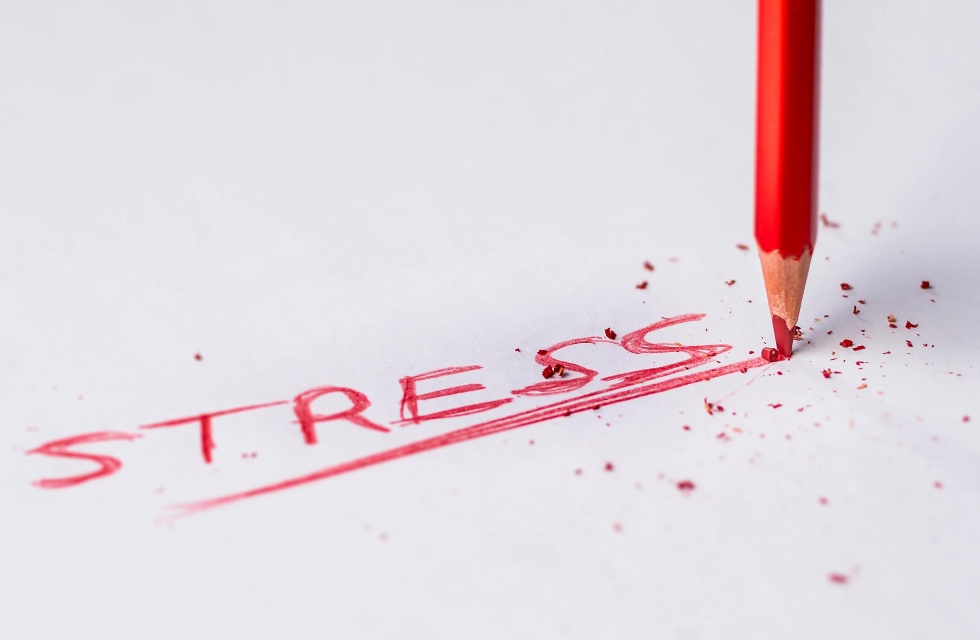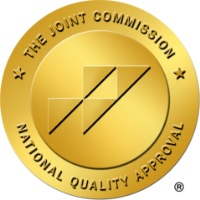We’ve all been there—feeling overwhelmed, anxious, or just plain exhausted for what seems like too long after a big life change. Maybe it’s a job loss, a divorce, or even the stress of moving to a new place. For a while, it might feel like just another challenging period. But then, the weight of it all starts to feel heavier, and you begin to wonder: Is this just stress—or is it something deeper? In this blog, we’ll help you understand when stress becomes something more serious, and how to recognize the signs that it might be time to seek professional help. If you’re feeling stuck, overwhelmed, or out of control, it’s important to address these feelings before they escalate. Reaching out to support systems, like Greater Boston behavioral health center, can be a vital step in regaining your well-being.
How Can You Tell If Stress Is Becoming a Mental Health Issue?
Stress is a natural response to life’s challenges, and in small doses, it can even be motivating. However, when stress goes unchecked or becomes overwhelming, it can start to affect your mental and physical well-being. Understanding the difference between a normal stress response and signs that stress is affecting mental health is crucial for taking the necessary steps toward recovery.

A healthy stress response is usually temporary, manageable, and resolves once the triggering event passes. But when stress lingers, intensifies, or begins to interfere with daily activities, it may indicate a deeper issue. The duration, intensity, and functional impact of stress are key factors in recognizing when it becomes something more than a temporary setback.
Here are some red flags to look out for when stress is affecting mental health:
- Physical Red Flags: Persistent headaches, stomach issues, or muscle tension. Sleep disturbances, fatigue, and frequent illness may also occur.
- Emotional Red Flags: Increased irritability, feelings of hopelessness, or constant anxiety, especially in the morning. You may also experience mood swings or feel easily overwhelmed.
- Behavioral Red Flags: Social withdrawal, neglecting responsibilities, or relying on unhealthy coping mechanisms, such as overeating, substance use, or excessive screen time.
Common Causes of Stress That Can Escalate
Stress is a natural part of life, but certain events can trigger prolonged or intense stress that may be difficult to manage. While some people can bounce back relatively easily from life’s challenges, others may struggle to cope, leading to deeper emotional issues. The impact of prolonged stress on daily life can be significant, affecting everything from work performance to relationships and health.
Common life events that often lead to lasting stress include:
- Death in the Family: Losing a loved one can be an overwhelming experience, and the grief and emotional toll can linger long after the funeral.
- Breakups or Divorce: The end of a significant relationship can create feelings of sadness, loneliness, and uncertainty about the future, often leading to emotional exhaustion.
- New Parenthood: While becoming a parent is an exciting experience, it’s also a major life change that can bring about stress due to new responsibilities, sleep deprivation, and the pressure to adjust.
- Relocation: Moving to a new city or country can be both thrilling and stressful, especially when adjusting to a new environment, finding new routines, and building new relationships.
Some people may quickly adapt to these stressors, but for others, these events can trigger ongoing struggles that feel harder to overcome. When stress becomes something more serious, it can lead to symptoms of anxiety, depression, or even post-traumatic stress disorder (PTSD).
What Are the Signs of Adjustment Disorder?
Adjustment Disorder is a condition that can develop when a person has difficulty coping with a significant life change or stressor. It’s important to understand that this is not a reflection of personal weakness, but rather a natural response to overwhelming events. While it’s common to experience stress after life changes, when those feelings don’t subside and interfere with daily functioning, it could be an indication of adjustment disorder.
Identifying adjustment disorder symptoms can help you recognize when it’s time to seek help. Common signs include:
- Sadness or Depression: A persistent feeling of sadness that doesn’t seem to lift over time.
- Irritability: You may feel unusually agitated or angry, often with little provocation.
- Withdrawal: A tendency to pull away from social interactions, feeling detached from others.
- Anxiety: Constant worry or fear, particularly when you think about the life change that triggered the stress.

These symptoms often emerge after a major trigger like moving to a new area, experiencing a breakup, losing a job, or facing health issues. The impact of these feelings on your daily life is what distinguishes Adjustment Disorder from typical stress. The good news is that adjustment disorder treatment is available to help.
Treatment options typically include therapy, such as cognitive-behavioral therapy (CBT), and may involve stress-management techniques. A mental health professional can help you navigate the feelings and stress caused by major life transitions. If you find that the emotional weight of a life change is too much to handle on your own, searching for CBT therapy online early can make a significant difference in your recovery.
When Temporary Stress Becomes Long-Term Struggle
Temporary stress is a natural response to life’s challenges, but for some, it can transition into something much more enduring. Typically, adjustment issues related to major life changes like job loss, a breakup, or relocation appear within the first three months of the stressor. However, if the stress doesn’t start to subside after this period, it may indicate that it’s becoming a long-term struggle.
Chronic stress symptoms can include feelings of constant tension, fatigue, or difficulty focusing, which can interfere with daily life. The emotional weight of these unresolved issues may begin to take a toll on relationships, work, and even physical health. If you find yourself stuck in a cycle where the stress doesn’t seem to go away, it might be a sign that something deeper is at play.
Recognizing when stress is no longer temporary is important, and it’s crucial to understand when to seek help for stress-related issues. If the stress continues to impact your ability to function or causes a noticeable decline in your well-being, reaching out for support is a proactive step toward healing.
Coping Strategies That Work—And When They Don’t
Coping with stress is important for maintaining mental and emotional health. Here are some effective strategies that can help you manage stress:
- Exercise: Physical activity releases endorphins, which can boost your mood and reduce stress levels.
- Talking it out: Sharing your feelings with a trusted friend or family member can provide emotional relief and fresh perspectives.
- Journaling: Writing about your thoughts and feelings helps to process emotions and track stress triggers over time.
- Establishing structure: Creating a predictable routine can reduce feelings of chaos and anxiety when stress becomes something more serious.

However, there are times when these coping strategies for chronic stress aren’t enough to resolve deeper issues. If you find that despite your best efforts, the stress continues to overwhelm you or negatively impacts your daily life. In these cases, stress therapy in MA can offer more personalized and effective tools to help you address the root causes.
What to Say to a Friend or Family Member Who’s Struggling
When a friend or family member is struggling with stress or anxiety, offering a listening ear and showing empathy can be one of the most supportive things you can do. Start the conversation gently by saying something like, “I’ve noticed you’ve been going through a tough time lately. How are you feeling today?” This opens the door for them to share their emotions without feeling pressured.
As the conversation unfolds, it might be helpful to gently guide them toward considering professional help, but avoid pushing. You could say something like, “It sounds like this has been really hard on you. Have you thought about talking to a therapist or counselor? They might be able to help you navigate these feelings.” It’s essential to let them know that seeking help is okay and that it’s a sign of strength, not weakness.
What to Expect from Professional Support
It is important to recognize when you should seek professional help for stress. Seeking professional support for adjustment issues can be an important step in regaining control and balance in your life. Treatment typically starts with therapy, where you can work through the stressors that are affecting your well-being.
In some cases, an Intensive Outpatient Program for mental health in Massachusetts or other areas may be recommended. IOP provides more structured support than standard therapy, with several hours of treatment per week. This option can be especially helpful for those dealing with more severe symptoms.

For some people, brief medication management may be part of the treatment plan. Medication can help manage symptoms of anxiety or depression, giving you the stability to focus on therapy and other forms of support.
It’s completely normal to seek help when life feels overwhelming. Even short-term therapy can help rebalance your life and equip you with strategies to navigate difficult emotions. When stress becomes something more serious, professional support becomes a vital part of regaining your well-being.
There’s No Shame in Reaching Out When Stress Becomes Something More Serious
Everyone experiences stress at some point in their lives. It’s a natural part of navigating life’s challenges. However, no one should feel stuck in it, especially when the burden becomes overwhelming. Understanding the difference between stress and adjustment disorder can help you identify when your feelings may require more than just self-care strategies. When stress becomes something more serious, it’s crucial to reach out for professional help. There is no shame in reaching out. Seeking help is a sign of strength, not weakness. You don’t have to face these challenges alone. Recovery begins with the awareness that something needs to change. With the right support, you can regain your balance and move forward toward a healthier, more fulfilling life.








